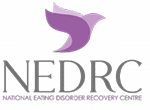National Eating Disorders Recovery Centre
First in Eating Disorders
Definitions of Terms
We have compiled a list of frequently used terms to help you understand the terminology healthcare professionals may use when speaking about your illness.
Diabulimia – Type 1 Diabetic manipulation of their insulin – Warning Signs of Diabulimia
- Unexplained weight loss
- Fatigue/ Lethargy
- Persistent Thirst or frequent urination
- Inconsistent readings of A1C (estimated average of sugar in one’s blood)
- Secrecy about Diabetes management
- Fears around “Insulin making me fat”
- Avoiding Diabetes related appointments
- Recurrent Diabetic Ketoacidosis
- Mood shifts and changes
- Discomfort testing/ injecting in front of others
- Overly strict food rules
Orthorexia
- A fixation over the quality of food: This is at the core of Orthorexia. Individuals living with orthorexia are extremely focused – and often obsessive – over the quality and purity of their food. Individuals with this condition often limit “good foods” to those that are organic, farm fresh, whole, raw and/ or vegan. The quantity of food is typically less important than that quality.
- Inflexible eating patterns: Rigid with food consumption, anything considered to be “bad” or “unhealthy” will be avoided. An example of this inflexibility is if someone with orthorexia were stuck on an island, and the only food available to them was something that they have deemed “unhealthy” they would choose to eat nothing.
- Severe emotional turmoil if “rules” are broken: If someone strays from their rigid eating patterns, or from their strict self-prescribed exercise regimen, severe anxiety, distress, shame, guilt and/ or depression typically follow.
- Cutting out entire food groups: Elimination of entire food groups, including processed foods, sugar, meat, dairy products, carbohydrates and/ or gluten.
- Constant worry about sickness or disease: May believe they will fall ill if they consume foods that are not “whole” or “clean” often considering these foods to be “poison.” To them, the risk of these foods causing sickness or diseases – although mostly unfounded – far outweighs eating that specific food.
- Anxiety simply being around certain foods: Someone with orthorexia might feel an intense need to separate themselves from their forbidden foods. They may feel uncomfortable or leave a room if that food can be seen. Isolating is a common avoidance technique for those with orthorexia–skipping social events that will have “fear foods”—often leading to depression and intensified thought disturbances and behaviors.
- This condition isn’t typically driven by poor body image: While individuals with anorexia might exhibit similar patterns of restriction, orthorexia isn’t necessarily rooted in obsessions over appearance or efforts to lose weight. orthorexia is entrenched in the need to eat or be “healthy.”
- Loss of weight: Although weight is not necessarily a clinical marker of orthorexia, some cases do involve weight loss. An orthorexia diet is an unbalanced diet that often results in malnutrition. While someone with orthorexia may feel as though cutting out certain foods will bring immense health benefits, they are often doing quite the opposite–depleting their own nutrition in vastly limiting food variety.
Excessive Compulsive Exercise
- Excessive that the person feels driven to perform in response to an obsession or according to rules that must be applied rigidly,
- Exercise is aimed at preventing some dreaded consequences or at preventing or reducing distress, often based on distorted beliefs about exercise.
- Exercise is time-consuming (takes more than 1 h a day), significantly interferes with the person’s daily routine, occupational functioning or social relationship or is continued despite medical injury, illness, or lack of enjoyment.
- At some point the patient has recognised that the exercise is excessive or unreasonable.
- Can include: vigorous exercise, marked increase in daily movement, and motor restlessness.
Mood Disorders: Depression, Anxiety, OCD (Obsessive Compulsive Disorder)
Depression symptoms include feeling very down, lethargic, lack of interest in things which you would normally be interested in, possibly feeling sad most of the time, or maybe even feeling like you have no emotions. If you are feeling like this for most part of the day, every day for more than two weeks, you may have depression.
Anxiety is that constant worry feeling, maybe a knot in your stomach, maybe feeling fear or afraid but not sure over what, it could be over nothing or maybe even everything.
OCD will prevent you from being unable to do something that you feel compelled to do, e.g., exercise, if you have a certain routine but cannot carry it out for various reasons, you may become irritable, angry, unable to concentrate or focus on anything else other than that thing you strongly feel you need to do.
Substance Misuse
The use of a substance e.g., laxatives, weight loss medications, alcohol, drugs (either prescription or non-prescription drugs) or the use of any mind-altering substance due to dependency with the aim of alleviating or coping with situations that are difficult or uncomfortable for the person.
PTSD (Post Traumatic Stress Disorder)
PTSD is a mental condition that is triggered due to an event witnessed or experienced by a person that causes intense distress, fear, worry or anxiety, panic and affects the person to the point they may experience “hyperarousal” which is an “on the edge” feeling, a “ready for action” feeling.
BPD/EUPD (Borderline Personality Disorder /Emotionally Unstable Personality Disorder)
The above terms are the official diagnosis, however, at NEDRC, we prefer to acknowledge the persons’ trauma and vulnerabilities, their fear of abandonment and emotional needs. We like to be present, build connection, compassion and empathy with all of our clients free from judgement.
Self Harm
Self-harm can take form in the most commonly thought of- self injurious behaviour, however, an Eating Disorder can also be seen as self-harm, as can excessive exercise, or a lack of care and compassion for your own self.
Impulse Control Problems
Can link in with self-harm but can also include making rushed, irritational or dangerous decisions without thinking through the risk or consequences of these decision or actions. May be seen with some who has ADHD.
Suicidal Ideation
Thinking about dying by suicide, methods or plans may be once off, come and go (fleeting) or may be constant. If you feel like life is not worth living or you would be better off not in this world anymore or people would be better off without you, seek support, seek care. Your life is never worthless, there is so much more for you to do and to experience. Life is transient (including events and feelings) nothing stays the same forever. There are people who want to help you, reach out. (Please see contacts on the “support page”)
Pyschotic Symptoms
Psychotic symptoms may occur due to prolonged starvation or depression that has become chronic maybe due to not been treated correctly or at all. Psychotic symptoms include becoming withdrawn, highly suspicious, imagining things- delusions, seeing things that are not really there- hallucinations, and firmly believing these things are real.
Gender Dysphoria
May not feel comfortable, happy or that they belong to the gender they were assigned at birth. The person may have strong feelings or desires to be the other gender or may not feel a particular comfort to any gender.
ASD (Autism Spectrum Disorder)
Is a complex developmental condition that can vary in how symptoms present in a person. A person with ASD sees, hears and feels the world different to those without ASD. There are varying degrees of ASD and many people can lead fulfilling lives. ASD requires specialised diagnosis services which NEDRC can provide access to a lead Consultant Psychiatrist in the area of Neurodevelopmental Psychiatry. (Please contact us for further details)

“They may forget your name, but they will never forget how you made them feel”
Families are an important part of the recovery process and we encourage their participation but only with your consent. We also understand that not everyone has a relationship with their family and would not force this connection.
About Us
The National Eating Disorders Recovery Centre (NEDRC) supports a realistic view to health and weight. We incorporate WHO, NICE, MARSIPAN and the HSE Model of Care for Eating Disorders guidelines along with elements of Health at Every Size (HAES) principles, Intuitive Eating and Therapeutic Movement. We approach each individual with a holistic view, using the Medical, Therapeutic, Psychosocial and Recovery models.

Start your recovery journey today
Give us a call to schedule an appointment.
Phone: 01 564 4450 / 087 7755996




